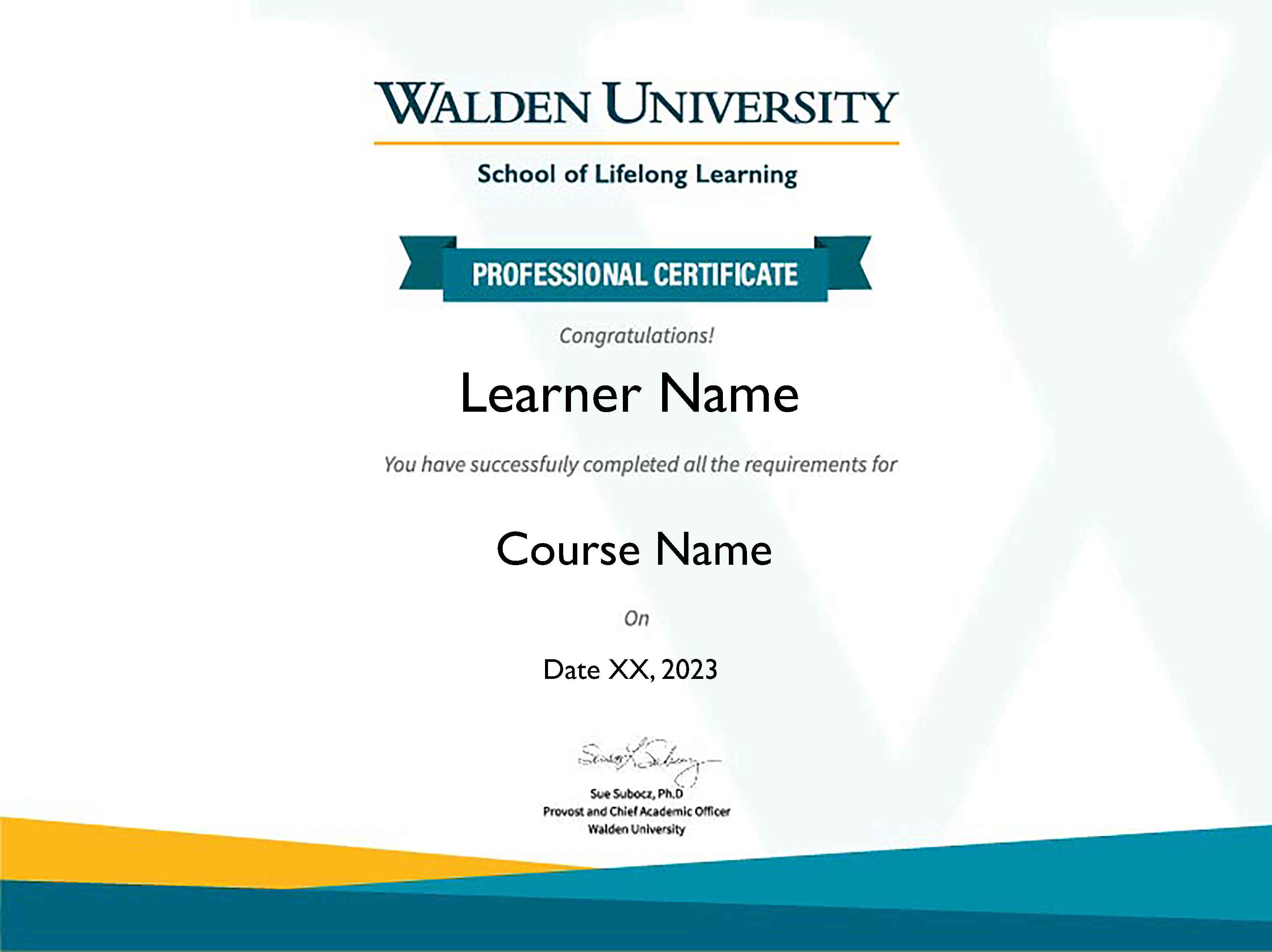Description
In the Law Enforcement Administrative Development (LEAD) Professional Certificate, officers in the field will benefit from an interdisciplinary approach to law enforcement leadership that combines the disciplines of criminal justice, leadership, communication, public policy and administration, and psychology. Learners will receive the foundation necessary to operate in supervisory and leadership positions within law enforcement. This approach also provides learners with the opportunity to understand, evaluate, and practically apply knowledge and skills for greater impact on police agencies and communities throughout their careers.
How It Works
Officers, as a cohort, will have 14 weeks to complete a series of courses in an online classroom, which will be self-paced, yet faculty supported. Upon completion of the courses, the cohort will participate in a four-day in-person or virtual residency featuring a series of instructional sessions and case study discussions that further analyze critical issues in law enforcement. For in-person residency, travel, lodging and other expenses are additional.
WANT TO LEARN MORE? Watch a recorded webinar to learn about this exciting new offering in law enforcement leadership. Watch here!







